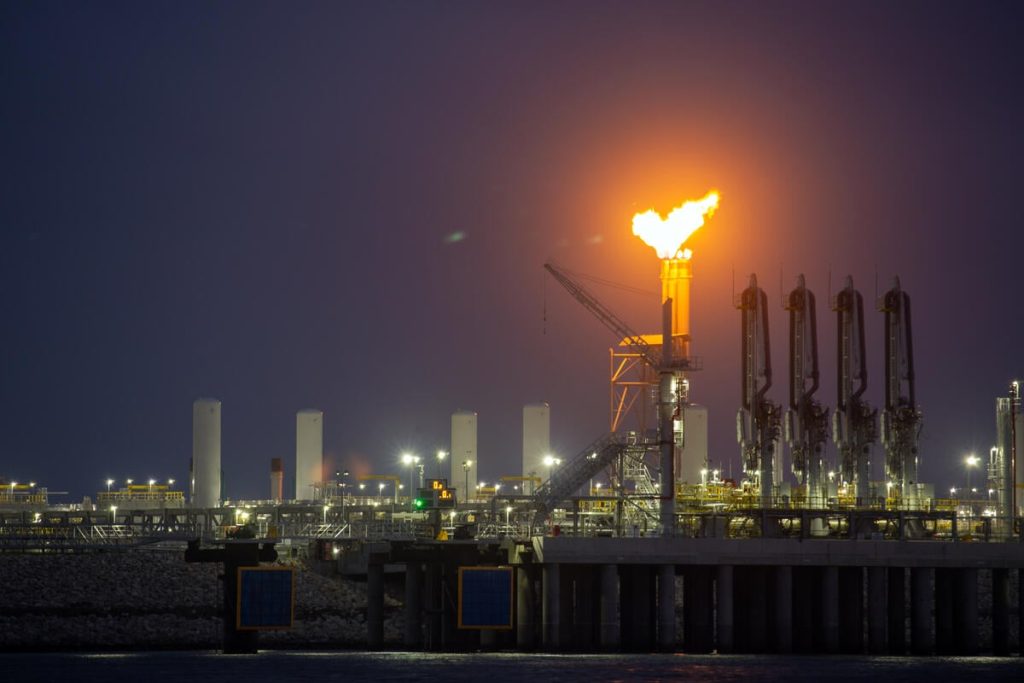
Read the report: Download “Failing the “Climate Test” LNG Projects Awaiting Final Investment Decision Do Not Stand Up to U.S. Government Analysis
Background
In December 2024, the Biden Administration’s Department of Energy (DOE) published a long-awaited update to the agency’s analysis of liquefied natural gas (LNG) exports. The multi-volume analysis, termed the 2024 LNG Export Study, represents the most comprehensive government assessment to-date of the energy, economic, and environmental impacts of U.S. LNG exports.
Key findings
- Major proposed LNG projects would fail to achieve the “climate neutrality” benchmark put forward by a 2024 federal analysis (“2024 LNG Study”) to inform the review of LNG export applications under the Natural Gas Act.
- As a result, pending LNG export applications appear to be inconsistent with the U.S. public interest and would drive up global greenhouse gas emissions. This finding is robust across policy/technology assumptions that the U.S. government included in the 2024 LNG Study.
- Even if major steps were taken to clean up the gas supply chain, U.S. exports would be inconsistent with the 1.5ºC climate goal. This is because LNG expansion drives up energy demand and displaces renewable energy in importing markets, according to the Global Change Assessment Model (GCAM) that underlies the government study.
- LNG projects are a risky investment. They take years to build and decades to pay off, and the Natural Gas Act authorizes the U.S. government to rescind export authorizations that are deemed inconsistent with the public interest.
- LNG expansion harms communities and working families. The massive growth in LNG infrastructure along the Texas and Louisiana Gulf Coast is already having significant public health impacts, and threatening coastal communities and ecosystems in the process.
Downloads:







